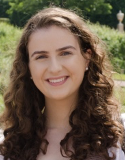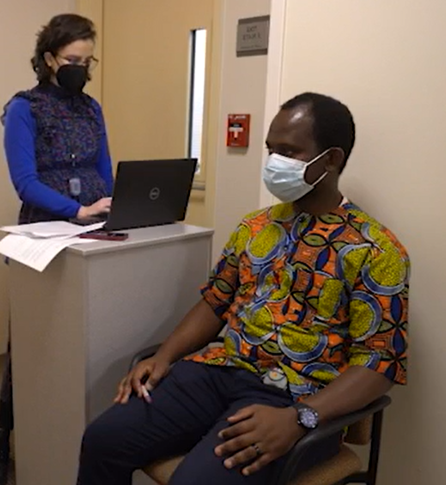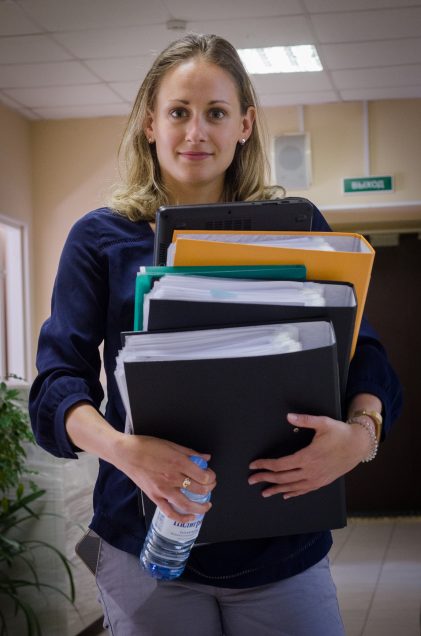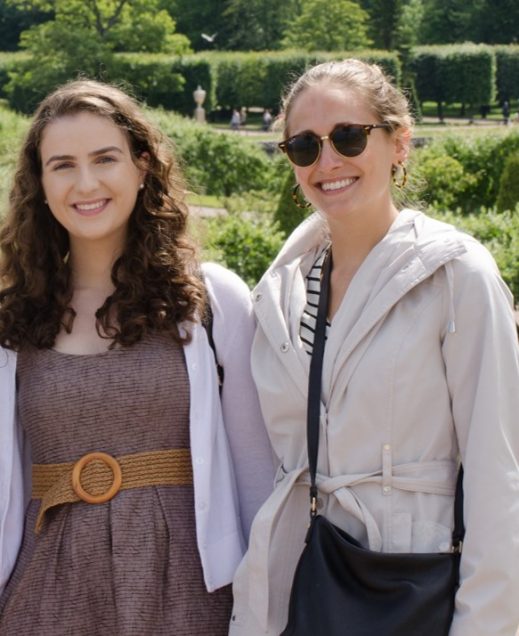Spotlight on… Sarah Rossi and Sally Young

 Sarah Rossi, MPH, Research Coordinator, and Sally Young, MPH, Senior Research Manager, Clinical Addiction Research and Education (CARE) Unit, Boston Medical Center
Sarah Rossi, MPH, Research Coordinator, and Sally Young, MPH, Senior Research Manager, Clinical Addiction Research and Education (CARE) Unit, Boston Medical Center
As told to URBAN ARCH Admin Core staff, December 2022
Tell us about your background and what led you to work in research.
Sarah: I majored in biology in undergrad, and throughout the college summers, I did a few different internships to test out different ways to use that degree. This included pharmaceutical wet lab research, clinical care assisting physical and occupational therapists, and medical education fieldwork in Ecuador. When I graduated, I realized I wanted to do research but not necessarily wet lab research, and I wanted to have an impact on clinical care but not necessarily be a clinician myself. I have also always been interested in global health work and thus the URBAN ARCH projects seemed like a perfect mesh of my experiences and interests. I started working in the CARE Unit in 2018 and I started my MPH at BU about a year later. My concentration was Community Assessment, Program Design, Implementation, and Evaluation, which allowed me to gain more knowledge and practical skills on needs assessment, qualitative research, and implementation science. I have greatly enjoyed working full time at the CARE Unit while working towards my MPH part-time, as it’s been a great way to apply what is learned in the classroom to our studies and vice versa.
Sally: I majored in psychology as an undergrad, but all throughout high school and college I had summer jobs working in the healthcare field on the administrative side, so I always had an interest in healthcare administration and management. I studied abroad in London during my junior year of college, where I had an internship at a substance use medical detox facility. I decided to apply for my master’s in public health while I was in undergrad and I started at BUSPH when I graduated college in 2013. My concentration was health policy and management. My prior experience in the substance use treatment field interested me in the CARE Unit and I started working here as a project coordinator in January 2015, upon the completion of my MPH. I have been here ever since!

Give us some background on the Tuberculosis, Alcohol, and Lung Comorbidities (TALC) study and what the study start-up process has looked like so far.
Sarah: The TALC study is one of the projects within the International URBAN ARCH Center. The purpose of the study is to determine how alcohol impacts post-TB lung disease in people with HIV (PWH). Post-TB lung disease was something I personally had never heard about prior to this study, so when I explain post-TB lung disease to people I compare it to long COVID which has become part of the vernacular of people not in the medical community. It essentially has to do with mid- and long-term health impacts that can occur after the infection itself has cleared. The TALC study is an 18-month longitudinal, observational study among PWH and TB, with varying levels of alcohol use. Participants will be recruited when they begin TB treatment and then we will follow up with them every 3 months for a total of 18 months. There is also a qualitative component to the study, to learn about the best ways to implement smoking and alcohol reduction interventions among this population.
This study was funded in September 2021 and was initially set to take place in St. Petersburg, Russia, like many of the studies that the URBAN ARCH team has worked on for the past two decades. However, due to the political implications of the Russian invasion of Ukraine, the study moved out of Russia and into Uganda. Prior to moving the study, we had been working on protocol development, standard operating procedures, translation of assessments, data collection forms, and figuring out logistics. Since the transition, we have been working on many of the same things, but adapting these processes and collection tools to the Uganda context, with the guidance of Drs. Winnie and Nneka. This transition has been greatly facilitated by the partnership with the Uganda team with the International URBAN ARCH Center through the TRAC study. However, there is still a learning curve with understanding the health systems in Uganda and the different processes that occur there.

What have been the most rewarding and most challenging aspects of the TALC study’s transition from Russia to Uganda?
Sally: There was an over 20-year relationship between BMC and the Russia research team at Pavlov, so we were very familiar with the infrastructure there, with the team, and with how research operated in St. Petersburg. Despite having great collaborators in Uganda there is so much for us to learn about how their healthcare and research systems work. That said, one of the most rewarding aspects of the transition has been how receptive the Uganda team has been to the project. It was short notice for everyone and they really stepped up and helped us to figure out the transition. Drs. Winnie and Nneka have been incredibly helpful.
What is one lesson you have learned during this process?
Sarah: One lesson that I believe applies to all global health research as well as research with populations in the US that you are not a member of, is to always take the guidance of people with more experience especially those who have more connections to the study population than you do. They are the experts and it is important to make sure that their voices are prioritized for all aspects of a study especially when adapting tools and interpreting data within a specific cultural contexts. This is an ongoing practice and I know I still have room to grow in this area!
Sally: Agreed. I think we have also learned of the importance of organization on any research project, and making sure there are good systems in place because there are so many moving parts in implementing a new project. It is easy for pieces to fall through the cracks.

What are you looking forward to in the future of the TALC study?
Sarah: I’m looking forward to seeing the results from this study. This is a new subject area for our team, and post-TB lung disease is an under researched topic, so the results from this study will be beneficial to the global TB research community in understanding the role of alcohol. I’m also looking forward to continuing to build relationships with the Uganda team and meet them in person during our planned site visit.
Sally: I echo what Sarah said, I think it’s exciting because this our first TB study in our research team. In the short term, I am looking forward to starting recruitment and to see the study get off the ground.
What is one thing people would find surprising to learn about you?
Sarah: I was a competitive Irish dancer for ten years of my life, and competed in the World Championships in 2013 in Boston. That is what brought me to Boston for the first time, and that was when I toured Tufts University, where I ended up going for undergrad.
Sally: I have been a distance runner since high school. I have run four full marathons and more half-marathons than I can count!